Reading readiness Phonics Worksheets for Ages 5-6
6 filtered results
-
From - To
Unlock the joy of reading with our engaging Reading Readiness Phonics Worksheets designed specifically for children ages 5-6! These worksheets foster essential phonics skills through fun, interactive activities that capture young learners' attention. Each resource focuses on foundational concepts like letter recognition, sound blending, and word building, ensuring a strong basis for future reading success. Teachers and parents can easily download and print each worksheet, providing a convenient and effective way to support early literacy development at home or in the classroom. Help your child embark on their reading journey with confidence, and empower them to explore the world of words!
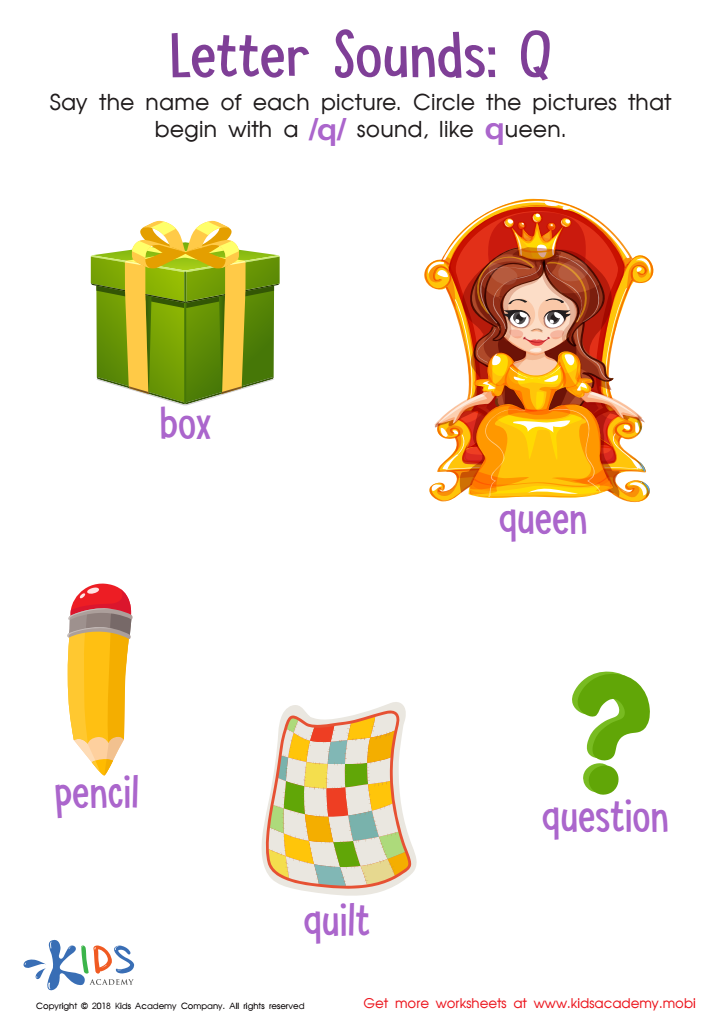

Letter Q Sounds Worksheet
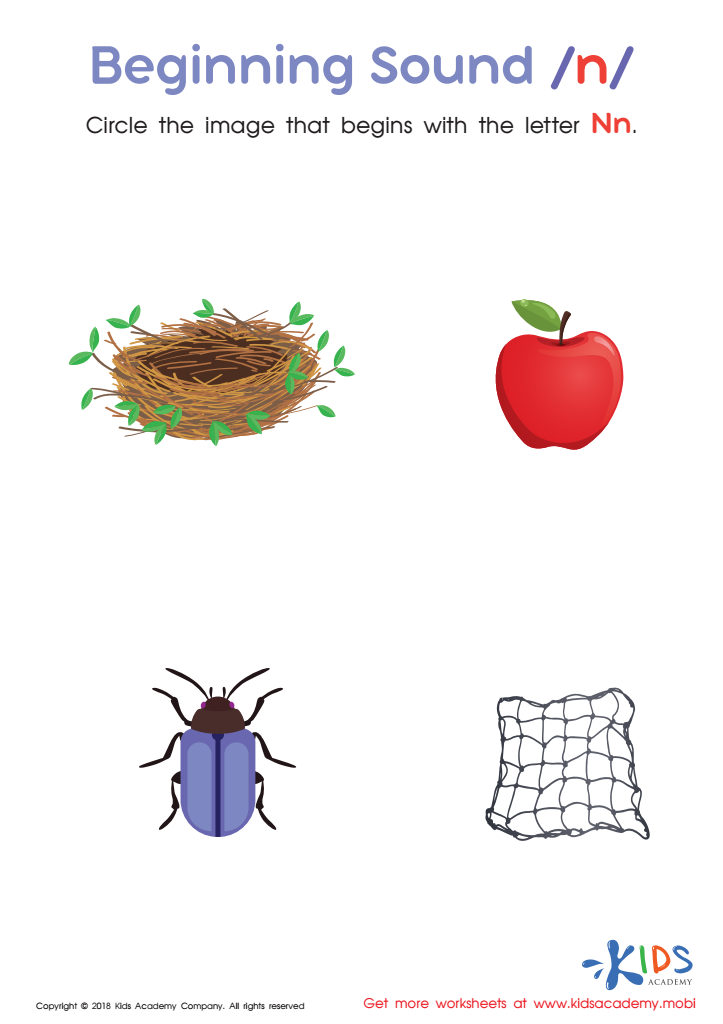

Beginning Sound «n» Worksheet
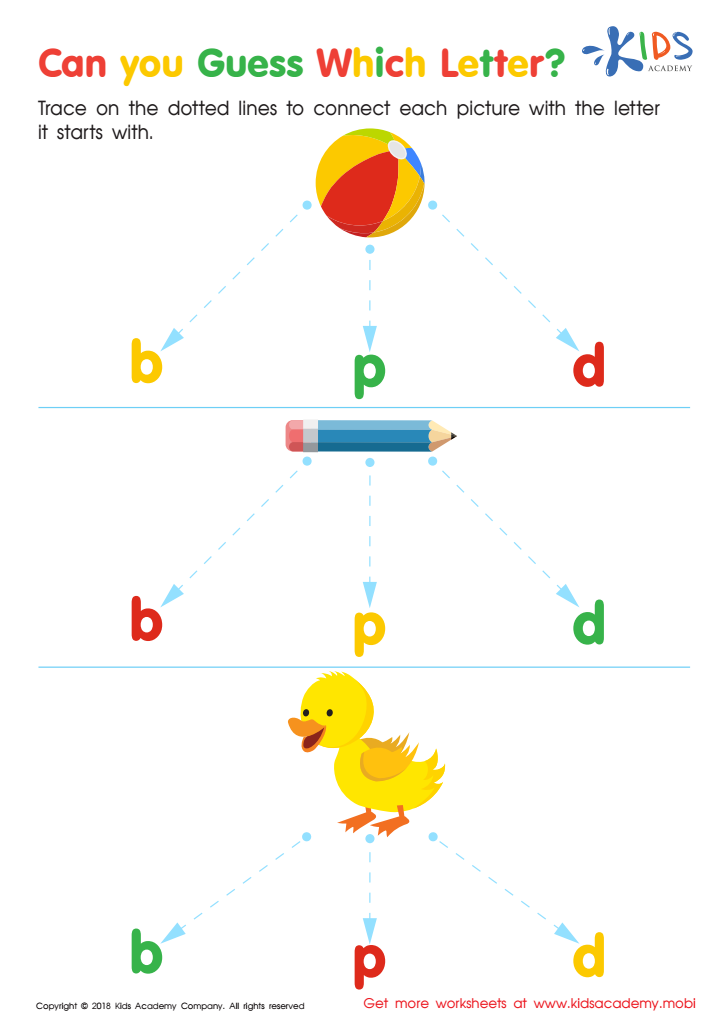

Can you Guess Which Letter? Worksheet
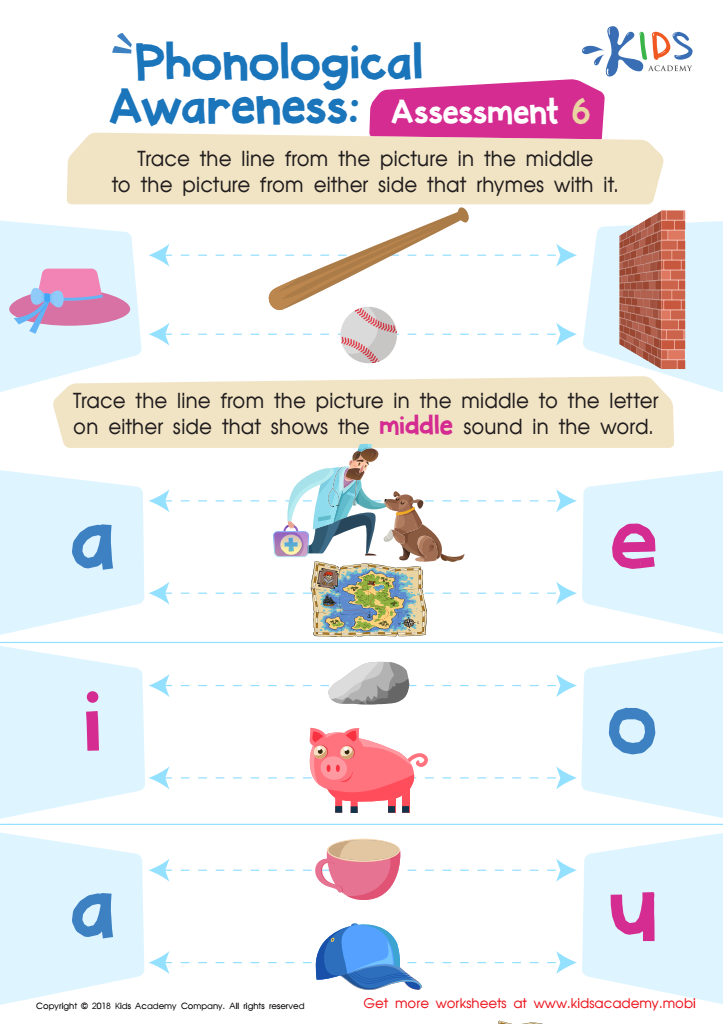

Phonological Awareness: Assessment 6 Worksheet


Phonological Awareness: Assessment 1 Worksheet
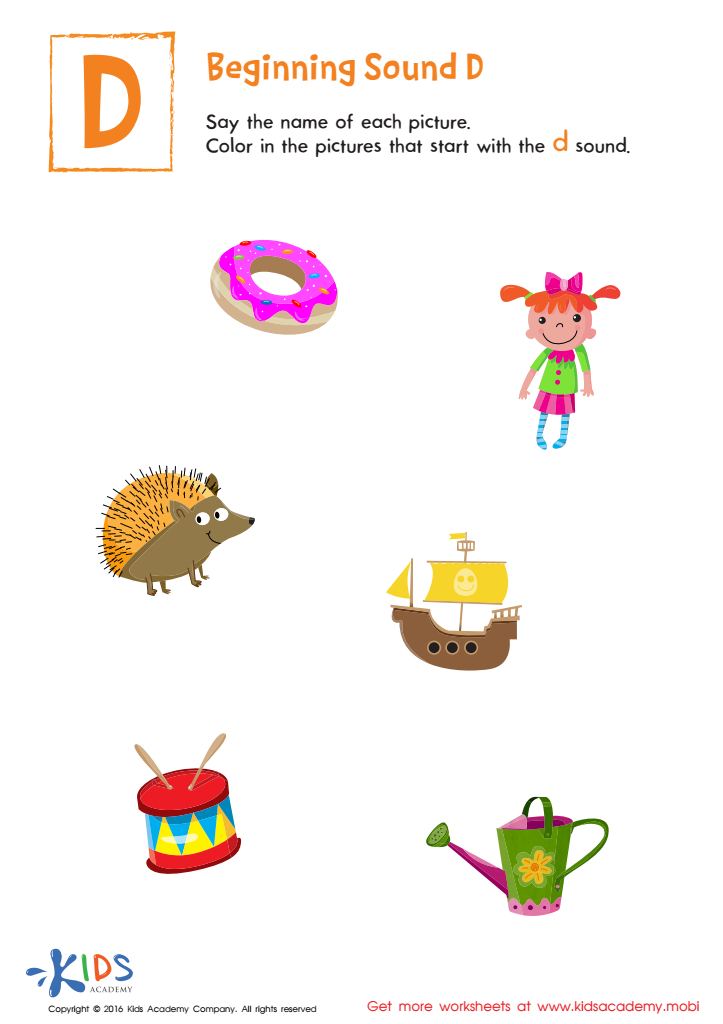

Beginning Sound D Worksheet
Reading readiness through phonics is crucial for children aged 5-6, laying a foundation for their literacy development. At this age, children are active learners, eager to engage with language. Phonics, the method of teaching reading by correlating sounds with written symbols, enables them to decode new words, fostering confidence in their reading abilities.
Parents and teachers should prioritize phonics because it nurtures essential skills that support overall academic success. Early phonics instruction helps children develop critical listening, visual recognition, and language skills, all integral to effective communication. These skills promote comprehension and enhance vocabulary, paving the way for more advanced literacy in later years.
Engaging children in phonics encourages a love for reading, making learning enjoyable and interactive. Using playful strategies—like rhymes, songs, and games—can make phonics feel less like a chore and more like an adventure.
Moreover, in today's information-rich world, reading proficiency is vital for lifelong learning. Ensuring children are phonemically aware and can read at grade level significantly contributes to their confidence and self-esteem. For teachers and parents, focusing on phonics fosters a solid reading foundation, ultimately helping children become articulate and well-rounded individuals. Providing this support now will yield lifelong benefits in their educational journeys.
 Assign to My Students
Assign to My Students

















